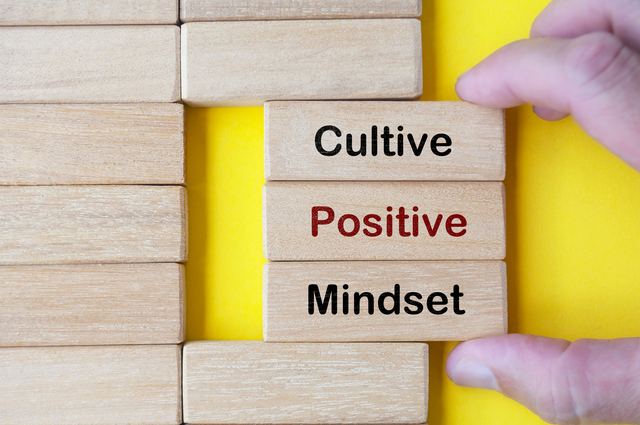
Ramsay Banna
In today’s fast-paced, hyperconnected world, it can often feel as though negativity is the prevailing force. Criticism, judgment, cancel culture, and social media outrage seem to dominate conversations, leaving many people questioning how to stay positive and hold on to faith in humanity. What happened to old-fashioned trust, love, forgiveness, and thinking positively of others? How do we maintain these values in an environment where people seem quick to attack, judge, and tear each other down?
This article will explore how one can cultivate a positive mindset, nurture faith in people, and practice forgiveness, even when the world seems rife with negativity. It will examine the reasons behind today’s culture of criticism, and most importantly, provide guidance on how to rise above it and find a deeper connection to humanity.
Understanding the Culture of Criticism and Judgment
Before we can talk about staying positive, it’s important to understand why the world feels more critical and divided today. There are several factors contributing to this environment:
- Social Media Amplification: Social media has made it easier than ever for people to voice their opinions, often without accountability. The anonymity and distance it provides can foster an atmosphere where harsh words and judgment flow freely. The speed at which information spreads on these platforms can also escalate conflicts quickly.
- Cancel Culture: Cancel culture, where individuals or groups are boycotted or ostracized for their actions or opinions, has emerged as a prominent force. While it can serve as a way to hold people accountable, it has often been misused, creating an environment where people are afraid to make mistakes or speak their minds. Instead of fostering growth and understanding, it can lead to fear, resentment, and divisiveness.
- Fear and Insecurity: Criticism often stems from fear or insecurity. People are afraid of being vulnerable or open to differences, so they protect themselves by judging or attacking others. This can create a cycle of negativity where people are more focused on tearing others down than building meaningful connections.
- The Pressure for Perfection: Society places immense pressure on people to appear perfect—whether in their careers, social lives, or personal beliefs. The reality is that none of us are perfect. The fear of not meeting these standards can lead people to judge others as a way of deflecting attention from their own perceived shortcomings.
Despite these challenges, it is possible to rise above and maintain a positive outlook. Here’s how.
1. Recognize the Humanity in Others
One of the most important steps in staying positive is to recognize the humanity in others. Every person you encounter is carrying their own burdens, insecurities, and struggles. When we acknowledge that people are not perfect—just as we are not perfect—it becomes easier to approach them with compassion instead of judgment.
Instead of jumping to conclusions or joining in the chorus of criticism, try to understand the person behind the words or actions. What might they be going through that you cannot see? Practicing empathy can dissolve anger and bring about a sense of shared humanity.
2. Cultivate Forgiveness and Let Go of Grudges
Forgiveness is a powerful tool for staying positive. Holding onto resentment or anger can be incredibly draining and will inevitably chip away at your ability to see the good in others. Learning to forgive—whether it’s a small slight or a larger betrayal—frees you from the grip of negativity.
It’s important to remember that forgiveness does not mean condoning hurtful behavior. Instead, it’s about choosing to release the emotional weight that comes with holding onto past grievances. It allows you to move forward with a lighter heart and maintain your faith in people.
3. Trust in the Goodness of Others
Trust can feel like a fragile concept in a world where people seem quick to betray or harm one another. However, trust is also a fundamental part of building meaningful relationships and living a positive life. While it may seem risky, placing trust in others can open the door to connection, love, and kindness.
Of course, trust should not be given blindly. It’s important to recognize who has earned your trust through consistent actions and who may not deserve it. But overall, approaching people with a mindset of trust instead of suspicion fosters an environment where positivity and connection can thrive.
4. Shift Your Focus from Judgment to Understanding
It’s easy to fall into the trap of judgment, especially when faced with opinions or actions that conflict with your own. But judgment rarely leads to resolution or connection. Instead, it creates division.
The next time you find yourself judging someone, pause and reflect. What is it about their behavior that triggers this reaction in you? Is there a deeper fear or insecurity behind your judgment? Shifting your focus from judgment to understanding can help break the cycle of negativity. Ask questions, listen to different perspectives, and be open to the idea that people have reasons for their behavior that you may not immediately see.
5. Limit Your Exposure to Negative Influences
In a world filled with constant streams of news, social media, and commentary, it’s important to be mindful of what you consume. Regular exposure to negativity—whether it’s in the form of angry social media posts, sensationalized news, or toxic conversations—can take a toll on your mental and emotional well-being.
Set boundaries for yourself when it comes to engaging with negative influences. This might mean taking breaks from social media, surrounding yourself with positive and uplifting people, or finding news sources that focus on balanced reporting. Curating your environment to support positivity will help you maintain a more optimistic outlook.
6. Lead by Example
In a world of criticism, judgment, and negativity, one of the most powerful ways to stay positive is to lead by example. Choose kindness over cruelty. Speak with empathy instead of condemnation. When others around you see this behavior, it can have a ripple effect, inspiring them to follow suit.
By embodying the values of trust, forgiveness, and love, you show others that there is another way—a better way. While you may not be able to change the whole world, you can influence the people and environments around you.
7. Nurture Positivity in Your Own Mind
Finally, staying positive begins with your own mindset. If you’re constantly criticizing yourself, doubting your worth, or focusing on your shortcomings, it becomes much harder to think positively about others.
Make a conscious effort to practice self-compassion. Treat yourself with the same kindness and understanding that you would offer to a close friend. The more positive and forgiving you are toward yourself, the easier it becomes to extend that same grace to others.
The Return to Trust, Humanity, and Love
It’s easy to feel disheartened in a world where negativity seems to reign. But the truth is that trust, humanity, love, and forgiveness still exist—they just need to be nurtured and rediscovered in the noise of modern life.
By choosing to approach people with empathy, letting go of grudges, placing trust in others, and leading with kindness, you can help restore a sense of humanity in your own life and the lives of those around you. It may not be easy, and it may require conscious effort, but the reward is a life filled with deeper connections, peace of mind, and the ability to see the good in people even when it feels hidden.
In the end, positivity isn’t about ignoring the flaws in the world—it’s about choosing to see the potential for goodness and growth. And by doing so, you can help bring back the old-fashioned values of trust, love, and forgiveness, one person at a time.
Ramsay Banna









